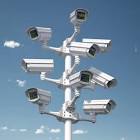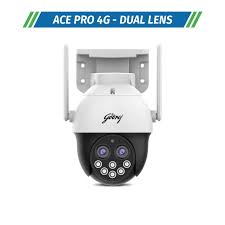In the realm of modern security systems, Network Video Recorders (NVRs) have revolutionized the way we monitor and record surveillance footage. When paired with CCTV cameras, NVRs offer a powerful and efficient solution for safeguarding homes, businesses, and public spaces.
Unlike traditional DVRs that require direct cabling to cameras, NVRs operate over IP networks, allowing for more flexibility in camera placement and scalability. This means that NVR systems can easily accommodate a larger number of cameras spread across various locations without the need for extensive cabling infrastructure.
One of the key advantages of using NVRs with CCTV cameras is their ability to capture high-definition video footage. With support for advanced video compression technologies such as H.264 and H.265, NVR systems can store large amounts of high-quality footage while minimizing storage space requirements.
Furthermore, NVRs offer remote access capabilities, enabling users to view live or recorded footage from anywhere with an internet connection. This feature is particularly beneficial for businesses with multiple locations or homeowners who want to keep an eye on their property while away.
Integration with motion detection and alarm systems is another notable feature of NVR CCTV camera setups. By configuring motion detection settings, users can receive alerts when unexpected movement is detected within the camera’s field of view. This proactive approach enhances security measures and allows for timely responses to potential threats.
In conclusion, the combination of NVRs and CCTV cameras represents a sophisticated yet user-friendly solution for effective surveillance. With features like remote access, high-definition recording, and motion detection capabilities, NVR CCTV systems provide peace of mind and enhanced security for both residential and commercial environments.
Understanding NVR CCTV Cameras: Key Differences, Benefits, and Connectivity Explained
- What is IP vs NVR camera?
- What is NVR in CCTV camera?
- Which is better DVR or NVR?
- Which is better NVR or DVR?
- Do NVR cameras need wifi?
- Can CCTV work without NVR?
- What are the 2 types of NVR?
What is IP vs NVR camera?
One frequently asked question in the realm of CCTV cameras is the difference between IP cameras and NVR cameras. While the terms are often used interchangeably, it’s important to understand that IP cameras refer to the type of camera that captures and transmits video data over an IP network. On the other hand, NVR cameras are part of a system that includes Network Video Recorders (NVRs) for storing and managing the video footage captured by IP cameras. In essence, IP cameras are the devices that capture the footage, while NVRs are the systems that process and store this footage for later viewing or analysis. Therefore, when considering IP vs NVR cameras, it’s crucial to recognize that they work together as components of a comprehensive surveillance system.
What is NVR in CCTV camera?
One of the most frequently asked questions regarding CCTV cameras is, “What is NVR in CCTV camera?” NVR stands for Network Video Recorder, which is a crucial component in modern surveillance systems. An NVR is responsible for recording and storing video footage captured by IP cameras over an IP network. Unlike traditional DVRs, NVRs offer advanced features such as remote access, high-definition recording, and scalability. By understanding the role of NVRs in CCTV systems, users can leverage these devices to enhance security measures and effectively monitor their premises.
Which is better DVR or NVR?
One commonly asked question in the realm of CCTV camera systems is whether DVR or NVR is the better choice. While both DVR (Digital Video Recorder) and NVR (Network Video Recorder) serve the purpose of recording and storing surveillance footage, they differ in their underlying technologies and functionalities. DVRs are suitable for analog cameras and use coaxial cables for connectivity, while NVRs are designed for IP cameras and operate over IP networks. In terms of flexibility, scalability, and video quality, NVRs tend to outperform DVRs due to their support for higher resolution footage, remote access capabilities, and easier integration with advanced security features like motion detection. Ultimately, the choice between DVR and NVR depends on specific requirements such as camera type, network infrastructure, and desired features.
Which is better NVR or DVR?
One frequently asked question in the realm of CCTV camera systems is, “Which is better, NVR or DVR?” The answer to this question often depends on specific needs and preferences. NVRs (Network Video Recorders) are generally considered more advanced than DVRs (Digital Video Recorders) due to their ability to operate over IP networks, offering higher resolution recording capabilities and greater flexibility in camera placement. NVRs also typically support remote access and offer more efficient storage options with advanced compression technologies. On the other hand, DVRs are known for their simplicity and affordability, making them suitable for smaller-scale surveillance setups. Ultimately, the choice between NVR and DVR will vary based on factors such as budget, desired features, and the scale of the surveillance system.
Do NVR cameras need wifi?
One common misconception about NVR cameras is whether they require a WiFi connection to function. In reality, NVR cameras do not necessarily need WiFi to operate. While some NVR systems do offer WiFi connectivity for remote access and configuration, the primary function of NVR cameras is to record and store surveillance footage through a wired network connection. This means that users can still benefit from the advanced features of NVR systems, such as high-definition recording and remote viewing, without relying on a WiFi connection.
Can CCTV work without NVR?
One common question that arises in discussions about NVR CCTV systems is whether CCTV cameras can function without an NVR. While it is technically possible for CCTV cameras to operate independently without an NVR, the full potential of surveillance capabilities is unlocked when paired with an NVR. Without an NVR, CCTV cameras typically rely on local storage options like SD cards or direct connections to monitors, limiting the scalability and remote access features that an NVR offers. By utilizing an NVR, users can benefit from centralized video recording, remote viewing capabilities, advanced storage options, and seamless integration with other security components for a comprehensive surveillance solution.
What are the 2 types of NVR?
When it comes to Network Video Recorders (NVRs) for CCTV camera systems, there are primarily two types that are commonly used: standalone NVRs and PC-based NVRs. Standalone NVRs are compact devices with built-in hardware and software specifically designed for video recording and storage. They are easy to set up and operate independently without the need for a separate computer. On the other hand, PC-based NVRs rely on a computer or server to function as the recording and storage unit. These systems offer more customization options and can support a higher number of cameras, making them suitable for larger surveillance setups requiring advanced features and scalability.



